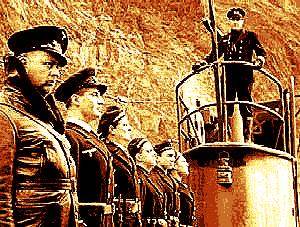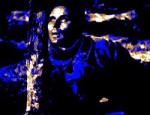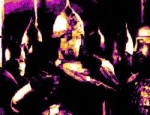Film Review

49th Parallel is quite unlike virtually any other wartime drama made during the war. The plot was inspired by Agatha Christie's Ten Little Niggers and essentially comprises a series of self-contained sketches, each with strident anti-isolationist and anti-Nazi messages. In comparison with many such films, the Germans are portrayed not as monsters but as believable, and at times sympathetic, human beings who have been corrupted by an evil ideology.
The film is particularly memorable for its stunning Canadian location, the unspoiled beauty of which lends the film its striking poetic quality. The travelogue sequences were shot with a handheld camera, giving the film a touch of scale and modernity that was lacking in British cinema at this time. The film's editor was none other than David Lean, who would soon embark on a hugely successful career as a director. The cast includes some of the finest actors of the period, most of whom give excellent performances. The one notable exception is Lawrence Oliviver, whose contribution is (as in many of his early film appearances) overly theatrical and marred by a hideous attempt at a French accent.
Whilst the anti-Nazi rhetoric may not be subtle, it is highly effective at showing why democracy, despite is manifest laws, is infinitely preferable to the soulless and destructive alternative espoused by Hitler and his cohorts. The screenplay, one of Pressburger's best, won the film's only Academy Award, in the Best Original Story category. Of the many wartime dramas that Powell and Pressburger made together, 49th Parallel is possibly the most enduring, on account of its technical brilliance, its entertainment value and its humanity.
© James Travers 2008
The above content is owned by frenchfilms.org and must not be copied.
Film Synopsis
Early in WWII, a German U-boat surfaces off the east coast of Canada. Only six members if its crew survive when RCAF bombers destroy the submarine in a fierce raid. These six head for the 49th parallel, the unguarded frontier between Canada and the United States, hoping to seeking sanctuary in the latter country which has yet to enter the war. On the way, they stop at a trading post where they are forced to kill several of the locals to avoid capture. Next they come across a Hutterite community which welcomes them until their fanatical adherence to fascism is revealed. As they press on, the original group of six Nazis is gradually whittled away, until only one remains, Lieutenants Hirth. Nothing that happens can shake his resolve that he will return to Germany a hero...© James Travers
The above content is owned by frenchfilms.org and must not be copied.
Similar Films
Here are some other films you may enjoy watching:- Went the Day Well? (1942)
- Les Hommes libres (2011)
- Lifeboat (1944)
- Confessions of a Nazi Spy (1939)
- Journey Into Fear (1943)
Other related links:
Film Credits
- Director: Michael Powell
- Script: Rodney Ackland, Emeric Pressburger
- Cinematographer: Freddie Young
- Music: Ralph Vaughan Williams
- Cast: Richard George (Kommandant Bernsdorff), Eric Portman (Lieutenant Hirth), Raymond Lovell (Lieutenant Kuhnecke), Niall MacGinnis (Vogel), Peter Moore (Kranz), John Chandos (Lohrmann), Basil Appleby (Jahner), Laurence Olivier (Johnnie - the Trapper), Finlay Currie (The Factor), Ley On (Nick - the Eskimo), Anton Walbrook (Peter), Glynis Johns (Anna), Charles Victor (Andreas), Frederick Piper (David), Leslie Howard (Philip Armstrong Scott), Tawera Moana (George - the Indian), Eric Clavering (Art), Charles Rolfe (Bob), Raymond Massey (Andy Brock), Theodore Salt (A United States Customs Officer)
- Country: UK
- Language: English / French / German
- Support: Black and White
- Runtime: 123 min
- Aka: The 49th Parallel ; The Forty-Ninth Parallel ; The Invaders
The best French war films ever made

The very best period film dramas

The best of British film comedies
